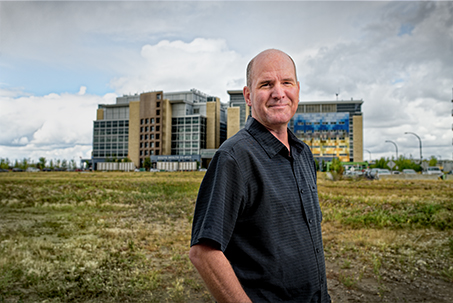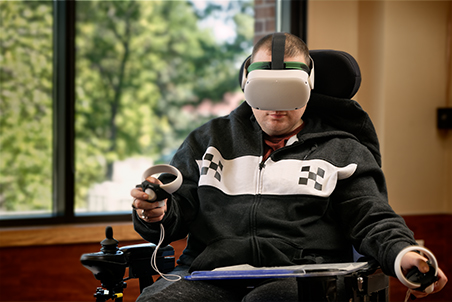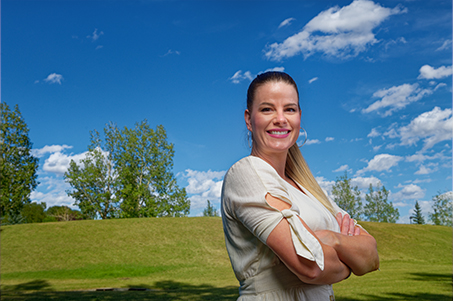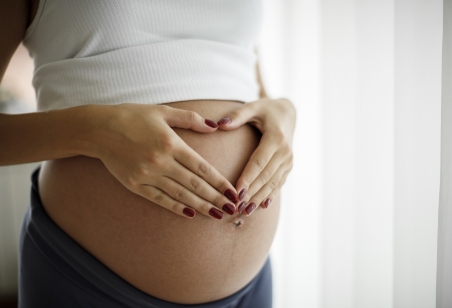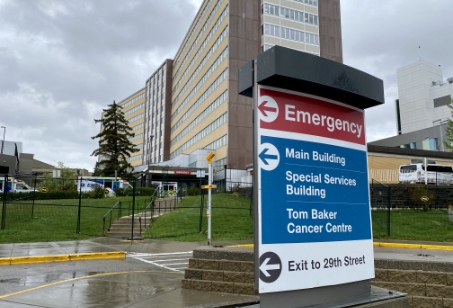From HELLP to hope: maternal clinical research that is saving lives.

While pregnant with her first child, Lyndsey experienced HELLP syndrome, a life-threatening condition experienced in later stage pregnancy and post-partum that is linked to preeclampsia. Today, she is able to consider having a second child, knowing the screening and prevention program is now available that would help with early detection of preeclampsia risks and prevention of her traumatic experience.
When Lyndsey became pregnant, she was a 35-year-old healthy woman. She enjoyed an uneventful pregnancy until she started feeling severe abdominal pain at 33 weeks. Lyndsey brushed it off as a small stomach bug or pulled muscle; then she started having nosebleeds and was regularly spitting up handfuls of blood.
As a first time mother, Lyndsey wasn’t sure what was normal for a third trimester, but her nursing training logic told her that she had increased blood volume due to pregnancy. The pain continued and a rash formed.
“I would get up, sit in the shower and cry — praying to God that everything was okay. I had no idea what was going on,” describes Lyndsey.
She was admitted to hospital several times, terrified for herself and her baby. Doctors explored everything from preterm labour to Braxton Hicks to irritable uterus. Then Lyndsey met Dr. Jo-Ann Johnson, who was able to assure her that her baby was healthy but began asking questions about Lyndsey’s blood pressure, medications and headaches. With Dr. Johnson’s knowledge and experience with HELLP syndrome, Lyndsey was immediately sent for blood work.
“I got to the clinic and had my bloodwork done. I remember sitting there reading a book and thinking I couldn’t wait to go home. Then, all of a sudden, this whole team of people came in and told me to call my husband because I was having the baby today, and that I was in critical, life-threatening emergency condition.”
Via C-section, Lyndsey delivered her daughter at 38 weeks after being diagnosed with HELLP syndrome linked to preeclampsia. Her body was already becoming toxic from liver failure, and she was showing preeclampsia related symptoms of hyperreflexia, which eventually turns into uncontrollable seizures.
Extreme measures were required to ensure that Lyndsey didn’t experience extensive blood loss that would have put her life at risk in the days following. She then underwent close monitoring for months to ensure she didn’t have a heart attack or stroke.
Thanks to the support of donors, the implementation of preeclampsia screening and prevention study (IMPRESS) is saving lives
Preeclampsia refers to the condition of persistent high blood pressure that develops during pregnancy. Found in two to five percent of women regardless of age, family history or health, this condition is often unexpected. Typically preeclampsia presents after 20 weeks of pregnancy but may also occur postpartum. While the exact cause of this condition is unknown, the impact that it can have on both mother and baby is substantial and can lead to severe outcomes or even death.
Thanks to your generosity, Dr. Jo-Ann Johnson and her team are working to find new and better ways to detect preeclampsia as early as possible – because when it comes to the health of our loved ones, good enough is not enough.
Luckily we made it to the other side and we are both healthy today, but the mental health impact of experiencing something like and knowing it was beyond my control… it was really hard the first year.
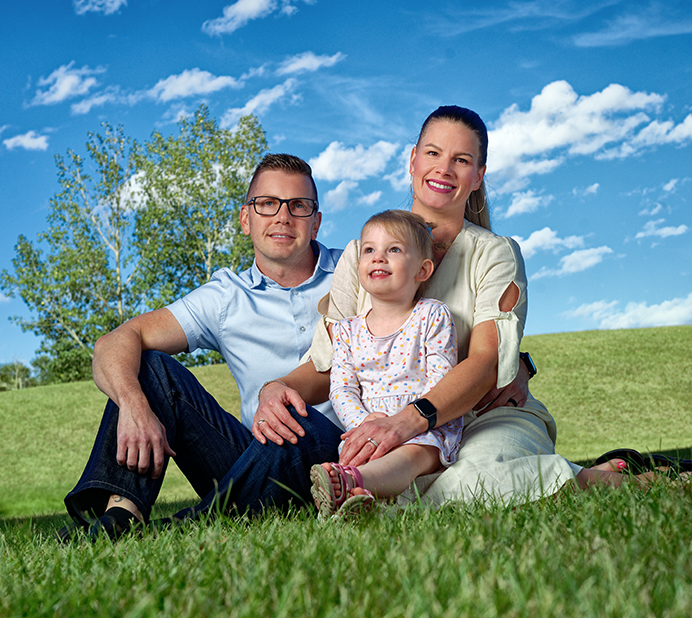
Lyndsey credits divine intervention for leading her to Dr. Johnson that day through the support of her obstetrician and her own medical knowledge as a nurse. She was very aware of the Cara HELLPS story, and had some nursing friends who provided care to Cara in her last days. Lyndsey knows too well how dire her situation was and how different her story could have been.

I don’t have words to describe my gratitude to donors, but it is bigger than the word huge. What I went through was so scary, and it’s incredible to know that there are people who are willing to make a positive impact. It changed my life, and I am so grateful to be given another chance. Because, I didn’t think I would be leaving the hospital that day.
lyndsey
How you are helping preeclampsia testing evolve
Far more effective than solely relying on maternal risk factors, this tool is able to identify women at risk of preeclampsia much more accurately and is endorsed by both national and international studies.
Using maternal factors, biochemistry results and biophysical information the test is able to estimate a patient’s risk of developing preeclampsia.
Currently in our community, women are tested in their first trimester for chromosomal differences. Now, thanks to research funded by donors like you, the IMPRESS study is testing the impact of offering women a first trimester preeclampsia screening test at the same time. The goal of this study is to show that by identifying those at risk sooner, proactive steps can be taken to mitigate the impacts on both mother and baby that preeclampsia can have.
How baby aspirin is saving lives
In addition, a 30 percent reduction in the occurrence of placental abruption, which can cause preterm birth and a 68 percent decrease in the amount of time spent in the Neonatal Intensive Care Unit has also been identified.
This research further emphasizes the need to identify pregnancies at risk of preeclampsia as early as possible. By doing this, proper measures can be taken to significantly reduce the risk of preeclampsia as well as the time spent in hospital for both mother and baby.
Since the re-start of this study, 765 women have participated in this screening with a 99 percent acceptance rate.
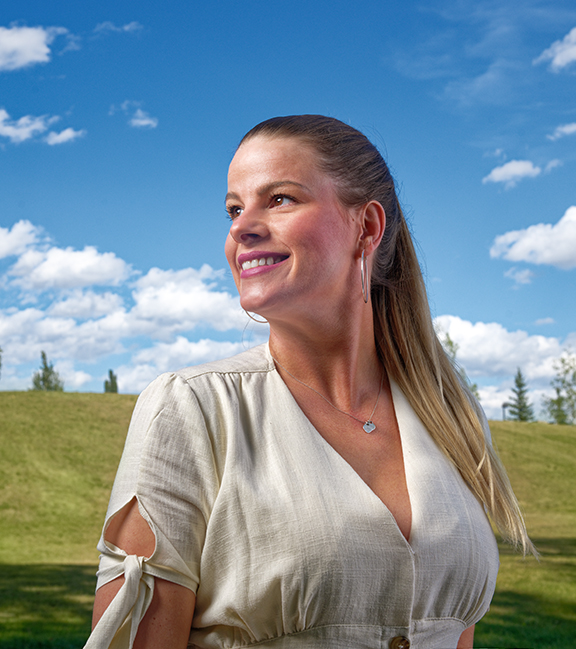
How screening is giving hope to Lyndsey in deciding to have another baby
Lyndsey has been living with the fear that if she were to get pregnant again, she may experience something similar, or worse to her first. However, knowing the screening can lead to early intervention has given her hope in growing her family.

I think [having this screening] would have made all the difference to me personally. It would have given me a different relationship with the health care team, more surveillance, more follow-up and I think my concerns would have been heard more. I would have been cared for more holistically, and that’s my wish for every family and every woman.
Lyndsey
How your support advanced COVID-19 research
It’s been a year… But because of your generous support for COVID-19 response and recovery we’re making it through! Thank you for being an important part of the support needed to keep going through this challenging year.
related initiatives
Your donations have made a significant impact on the detection, care and treatment of COVID-19 over the past year.
Breakthrough investments made in COVID-19

COVID-19 spotlight: an investment in knowledge that doesn’t stop
Foundation support for the establishment of a biorepository will allow for the long-term preservation of positive COVID-19 samples, giving Alberta’s world-class medical-scientific researchers local access to the biological material they need to further study the virus.
There are currently more than 30 (and growing) research projects in Alberta in need of positive samples to support their coronavirus-related research. This is an investment in the future as these samples will be available long-term to benefit collaborative research projects across the province and even the world.
Other investments in research
Developing further understanding
Advancing our understanding of the virus and others like it through the establishment of a biorepository for human COVID-19 samples across the province to understand transmission and limit spread.
CATCO
Investing in treatments for critically-ill COVID positive patients through the funding of an international CATCO study that has paved the way for future discoveries and made possible advancements within a year that previously took up to five years.
Advancing treatment protocols
Early in the pandemic, Calgary Health Foundation became the primary funder of the Alberta HOPE COVID-19 trial, a collaboration between Researchers and Health Professionals at the University of Calgary, University of Alberta, and Alberta Health Services. Your donation meant quick response to the unknown nature of the virus and lack of any proven treatments for this severe condition. It remains imperative that we work together and use the resources we have to try to improve the lives of Albertans during this global pandemic.
Stories of Impact
Your support of Calgary Health Foundation has funded breakthroughs that are transforming lives. See how!



 Read Story
Read Story Covid-19 Impact
Covid-19 Impact